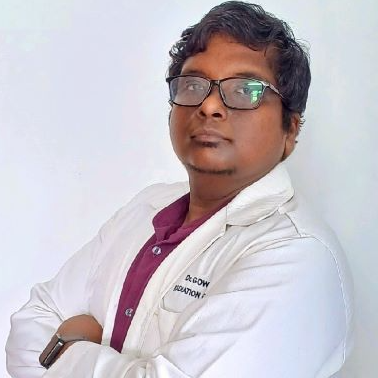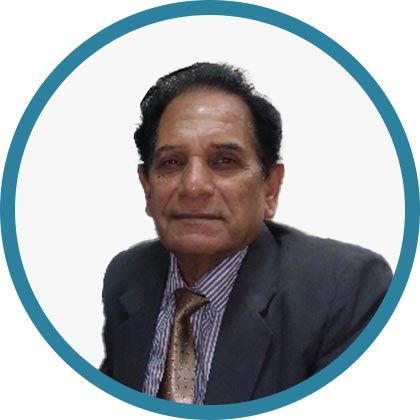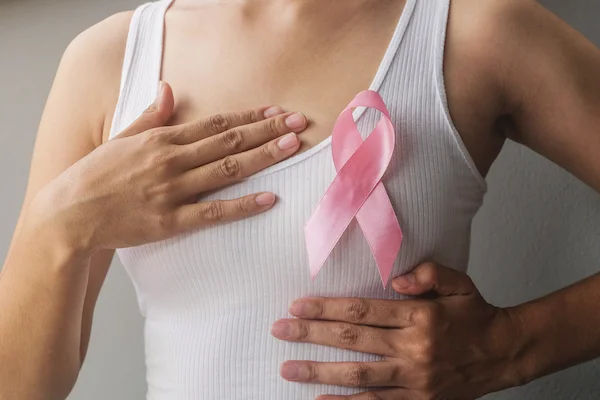Understanding Recurrent Breast Cancer
Understand what recurrent breast cancer is, why it can return after treatment, and how it’s detected and managed. Learn about the types of recurrence and available treatment options for improved outcomes.

Written by Dr. J T Hema Pratima
Reviewed by Dr. Rohinipriyanka Pondugula MBBS
Last updated on 13th Jan, 2026

Breast cancer is a challenging journey, and for some women, the battle doesn’t end after initial treatment. Recurrent breast cancer occurs when cancer returns after a period of remission. This can be emotionally and physically overwhelming, but understanding what it means, its symptoms, and how to manage it can help you stay prepared and hopeful.
What Is Recurrent Breast Cancer?
Recurrent breast cancer happens when cancer cells that were not completely eliminated during the first treatment grow back. It can return in the same breast (local recurrence), nearby lymph nodes (regional recurrence), or other parts of the body like bones, lungs, liver, or brain (distant recurrence or metastasis).
Types of Recurrence
1. Local Recurrence: Cancer returns in the same breast or near the original tumour site.
2. Regional Recurrence: Cancer comes back in nearby lymph nodes, such as under the arm or near the collarbone.
3. Distant Recurrence (Metastatic): Cancer spreads to distant organs like the bones, liver, lungs, or brain.
Signs and Symptoms to Watch For
Early detection of recurrence improves treatment success. Be aware of these possible signs:
Local Recurrence:
- A new lump or thickening in the breast or near the surgical scar.
- Changes in breast skin (redness, dimpling, or scaling).
- Nipple discharge (especially if bloody).
Regional Recurrence:
- Swelling or lumps in lymph nodes (underarm, collarbone, or neck).
Distant Recurrence:
- Persistent bone pain (may indicate spread to bones).
- Shortness of breath or a chronic cough (possible lung involvement).
- Headaches, dizziness, or vision changes (possible brain metastasis).
- Jaundice (yellowing of skin/eyes) or abdominal pain (liver involvement).
If you notice any of these symptoms,
Consult Top Specialists
Why Does Breast Cancer Recur?
Several factors contribute to recurrence:
- Incomplete Treatment: Some cancer cells may survive surgery, chemotherapy, or radiation.
- Aggressive Cancer Types: Certain cancers (like triple-negative or HER2-positive) have higher recurrence risks.
- Lymph Node Involvement: If cancer had spread to lymph nodes initially, recurrence risk increases.
- Hormone Receptor Status: Hormone-positive cancers may return if hormone therapy is stopped or ineffective.
Managing Recurrent Breast Cancer
While recurrence is distressing, advances in treatment offer hope. Your doctor will tailor therapy based on where and how the cancer has returned.
Treatment Options
1. Surgery: If cancer returns locally, surgery (lumpectomy or mastectomy) may be an option.
2. Radiation Therapy: Used for local or regional recurrence if not previously given.
3. Hormone Therapy: Effective for hormone receptor-positive cancers.
4. Chemotherapy: Used for aggressive or widespread recurrence.
5. Targeted Therapy: Drugs like Herceptin for HER2-positive cancers.
6. Immunotherapy: Helps the immune system fight cancer cells.
Lifestyle and Supportive Care
- Healthy Diet: Focus on fruits, vegetables, lean proteins, and whole grains to support immunity.
- Regular Exercise: Helps reduce fatigue, improve mood, and maintain strength.
- Emotional Support: Counselling, support groups, or talking to loved ones can ease anxiety.
- Follow-Up Care: Regular check-ups and screenings help detect recurrence early.
Can Recurrence Be Prevented?
While not all recurrences can be prevented, these steps may help reduce risk:
- Adhere to Hormone Therapy: If prescribed, complete the full course.
- Maintain a Healthy Weight: Obesity is linked to higher recurrence risk.
- Limit Alcohol: Excessive drinking may increase risk.
- Stay Active: Regular physical activity supports overall health.
When to Seek Help?
If you experience any unusual symptoms or feel concerned about recurrence, don’t hesitate to reach out to your healthcare team. Early detection leads to better outcomes.
If you or a loved one has a history of breast cancer and needs guidance, Apollo24|7 offers expert consultations and diagnostic tests. Book an appointment today to stay proactive about your health.
Conclusion
Recurrent breast cancer is a difficult reality, but with awareness, timely medical care, and a strong support system, you can navigate this journey with confidence. Stay vigilant, prioritise self-care, and remember—you are not alone in this fight.
Would you like to schedule a check-up or discuss concerns with a specialist? Visit Apollo24|7 for seamless healthcare support.
Consult Top Specialists
Consult Top Specialists

Dr. Rupam Manna
Radiation Specialist Oncologist
7 Years • MBBS MD(RADIO THERAPY), CCEBDM
Barasat
Diab-Eat-Ease, Barasat

Dr. Sanchayan Mandal
Medical Oncologist
17 Years • MBBS, DrNB( MEDICAL ONCOLOGY), DNB (RADIOTHERAPY),ECMO. PDCR. ASCO
Kolkata
MCR SUPER SPECIALITY POLY CLINIC & PATHOLOGY, Kolkata

Dr.sanchayan Mandal
Medical Oncologist
17 Years • MBBS, DrNB( MEDICAL ONCOLOGY), DNB (RADIOTHERAPY),ECMO. PDCR. ASCO
Kolkata
Dr. Sanchayan Mandal Oncology Clinic, Kolkata

Dr Gowshikk Rajkumar
Oncologist
10 Years • MBBS, DMRT, DNB in Radiation oncology
Bengaluru
Apollo Clinic, JP nagar, Bengaluru

Dr. Subhash Chandra Chanana
Oncologist
51 Years • M.B.B.S , M.S. (General Surgery), F.A.C.S (Oncosurgeon)
Gurugram
APOLLO SUGAR CLINICS GURUGRAM, Gurugram
Consult Top Specialists

Dr. Rupam Manna
Radiation Specialist Oncologist
7 Years • MBBS MD(RADIO THERAPY), CCEBDM
Barasat
Diab-Eat-Ease, Barasat

Dr. Sanchayan Mandal
Medical Oncologist
17 Years • MBBS, DrNB( MEDICAL ONCOLOGY), DNB (RADIOTHERAPY),ECMO. PDCR. ASCO
Kolkata
MCR SUPER SPECIALITY POLY CLINIC & PATHOLOGY, Kolkata

Dr.sanchayan Mandal
Medical Oncologist
17 Years • MBBS, DrNB( MEDICAL ONCOLOGY), DNB (RADIOTHERAPY),ECMO. PDCR. ASCO
Kolkata
Dr. Sanchayan Mandal Oncology Clinic, Kolkata

Dr Gowshikk Rajkumar
Oncologist
10 Years • MBBS, DMRT, DNB in Radiation oncology
Bengaluru
Apollo Clinic, JP nagar, Bengaluru

Dr. Subhash Chandra Chanana
Oncologist
51 Years • M.B.B.S , M.S. (General Surgery), F.A.C.S (Oncosurgeon)
Gurugram
APOLLO SUGAR CLINICS GURUGRAM, Gurugram




